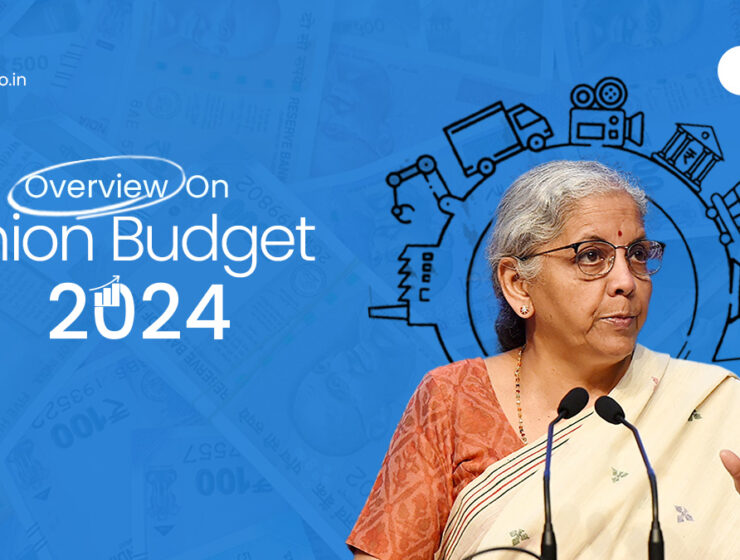

Why does the Government want to take away our money? What are they using it for? Why do we have to pay tax on the all the income we earn? These are some of the most common questions, taxpayers ask. Well, India is a democratic country, so you have no choice but to pay tax. However, what you do have, is options to save the tax that you pay. The reason as to why we have to pay tax, is basically because, the government uses that same money to fund projects, that are for the betterment of the country.
Few examples would be, construction of roads, free education for under privileged children, pension to retired employees, etc. Though due to corruption, all the money paid as taxes is not being used to it’s full potential. This doesn’t mean that people should try and find out ways to hide their income, so that they can avoid paying taxes, because if you get caught, then there is a possibility, you will end up paying much more than, you initially had to pay as tax.
People mistake tax evasion for tax planning, they think that, by hiding their income, they are planning their taxes. Tax evasion is wrong, because here, taxpayers do not use the tax saving tools to avoid paying taxes, they hide their income which is illegal and this, results in black money. It is always better to be safe than sorry, so pay your taxes, if you don’t, then the penalty charges may come crashing down on you.
Another reason why you must pay taxes is because, when you go in for a home loan, one of the documented proof that is required is your current and previous years Income Tax Return Filings. Also while making your passport these document proofs are required. So if you actually go to see, there’s not only the penalty charges, that you will have to face, but also, a lot more is at stake too.
If you do not know how to file your taxes, or how to show the other income you receive, take the help of a Chartered Accountant, they are tax experts, so they will not only file your taxes the right way, but also tell you where and how you can save more of your taxes.
When do we have to pay tax

As mentioned above, tax is levied on those earning income, it could from different avenues, like house property, salary or business, capital gains, winning a lottery, etc. There is a certain limit up to which your income earned will be exempt from tax, but any income received over and above that, will be taxed.
People find it unfair, that they have to pay tax on every income that they earn. That’s why for different incomes, it is taxed differently. For higher risk investments, the tax rate is very low as compared to the less risky investments. For example, those investing in equity, after one year of holding the investment, it becomes tax free upto 1 lakh of gain, but if it is held for less than a year, then it is taxable at 15% + 4% education cess.
The fact that all incomes are taxed differently, reduces the stress of the people. For example, investors can plan their investments in such a way, that they receive the maximum amount of their income earned. Whereas salaried employees can save tax only depending on their income and they have very limited options to invest in, that will save their tax.
Let us look at the tax slab rates for individuals, falling in different categories as per old as well as new tax slab in Table 1 below:
An education cess will also be applied at 4%, along with the above tax rates. Please note that there are some pointers to keep in mind, apart from the above table:
- Individual earning income over and above 50 lacs but below 1 crore, have to pay an additional surcharge of 10% on the tax. Surcharge further increases based on taxable income.
- Earlier dividend was tax free upto 10 lacs, but now any dividend received is a taxable income for the investor. Please keep in mind that it will be taxed as per your slab rates.
- If the total income is less than Rs.5 lakhs, the rebate shall be either 100% of the income tax or Rs. 12,500/-, whichever is less. This rebate can be availed under section 87A.
We pay so many types of taxes in India, directly or indirectly. Today we will focus on 5 major taxes an individual has to pay on the income he receives. Listed below are the incomes:
- Salary income:
Income received by an employee from an employer, for the services rendered by the employee. It could either be in the form of monetary or non – monetary benefits. Some parts of the salary are fully taxable and some are exempt up to a certain limit. Each company forms their salary structure in a different way. Observe the Table 2 below and understand the different sections of the salary.
These are the main parts, that a salary structure consists of. Once employees claim all the exemptions available, then they also can claim the deductions available to them, under different sections, for example 80C, 80D, 80G, etc. So after taking benefit of all the exemptions and deductions, the final gross salary will be considered and taxed according to the slab rates above, in Table 1.
- Income from Business / Profession:
Any profit earned or gain received from an individual’s business or profession, will be taxed under this head. Let us understand what is a business and what is a profession:
Business: Any activity related to trade, commerce and manufacturing, with the intention of earning profit is known as business.
Profession: Any person who uses their skillful knowledge, in their field of expertise, to render their services for a certain amount of fees. For example, Lawyers, Doctors, Chartered Accountants and other professionals.
How is tax implied?
Tax is charged on the profit earned by businessman or professional and not on the turnover or sales consideration. All the expenses incurred on the business or profession can be claimed against the income. Some of these expenses are, stationery, transport cost, internet charges, etc. So once all the expenses are deducted from the income, the remaining part will be the profit earned, which will be taxed.
When tax audit is applicable?
Business: If the business sale crosses over 1 crore.
Profession: If the professional income exceeds 50 lakhs.
Note: If the assessee earns income below 2 crores, and if no books of accounts are maintained, then he has an option to opt for presumptive taxation, which means, 8% of the turnover is considered as the profit earned for non-digital transactions and 6% for digital transactions , and tax is levied on that.
- Income from Capital Gain:
Any income or gain earned on an appreciated capital ( movable / immovable ) of an individual, will be taxed under this head of income, with subject to certain exemptions. The capital gain incurred can be short term capital gain or long term capital gain, it all depends on ‘for how long the asset is held’. The below table will make your concept clear.
There are certain ways to save your income tax on long term capital gains.
4. Income from House Property
If the asset is sold, before the completion of the minimum holding period, then it is considered as short term capital gain. And if it is sold, after the completion of the minimum holding period, then it will attract long term capital gains. Also note that the 4% which is added is the education cess which is charged. Tax charged on capital gain from house property, can be exempted under section 54, subject to certain conditions.
Any income from any land, building or apartment, which is owned by the assessee, but not utilized for any business or professional purposes, is taxed under this head of income. Let us look at the following points:
- If a person has multiple properties, then he / she can claim only two as self occupied and the others by default become Let out or Deemed to be let out.
- The deductions that one can claim from income from house property are municipal taxes ( which are actually paid), 30% on the annual value, which is a standard deduction.
- Interest on house loan can also be claimed, upto a limit of 2 lakhs in a financial year.
A major example of this is, an individual having 2 flats, he stays in one and gives the other on rent, so the rent, becomes the income of the individual, and after availing the above deductions, the income will be taxed according to the tax slab of an individual.
- Income from other sources:
Income which is earned from anywhere else, apart from the income received under the above heads, will be considered and taxed as income from other sources. Some examples of this income are, winnings from a lottery / betting / game show, gifts, foreign dividend, interest income on investment and securities, rental income from plant, machinery and buildings,
Deductions:
- Any brokerage charges paid, eg. commission.
- Depreciation can also be claimed.
- Any other expenditure incurred ( not capital expenditure ) for the purpose of generating such income.
So after, the deductions, the income will be taxed as per the slab rates of an individual.
The above are the major taxes we pay on the various incomes we earn. Now I’m sure many of you are clear on what incomes you earn and under which heads they are taxed. So pay your taxes on time, SAVE as much, of your taxes as you can, of course through the tax saving tools offered to you. When you have a choice to choose the right path, why go down the wrong?
A financial planning platform where you can plan all your goals, cash flows, expenses management, etc., which provides you advisory on the go. Unbiased and with uttermost data security, create your Financial Planning without any cost on: http://bit.ly/Robo-Fintoo
Disclaimer: The views shared in blogs are based on personal opinion and does not endorse the company’s views. Investment is a subject matter of solicitation and one should consult a Financial Adviser before making any investment using the app. Making an investment using the app is the sole decision of the investor and the company or any of its communication cannot be held responsible for it.
Related Posts
Stay up-to-date with the latest information.


